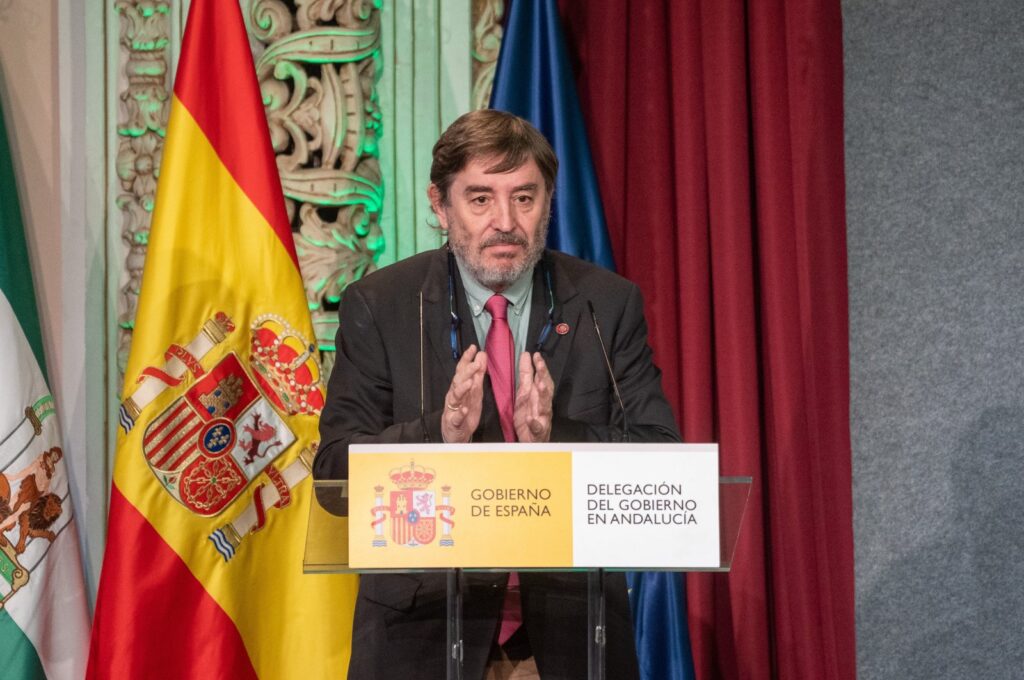Renowned poet and author Luis Garcia Montero, director of the Cervantes Cultural Institute, recently visited Istanbul, marking an important milestone in the burgeoning relationship between Turkey and the Spanish-speaking world. Montero’s observations shed light on the growing interest in Spanish language and culture in the vibrant metropolis of Istanbul and strategic efforts to deepen cultural exchange between the two countries.
“There is no longer a dialogue between Europe and Asia, but a dialogue of cultures, of cities on the move, of people coming and going. And I am very happy that here (Istanbul) the Cervantes Institute is carrying out its mission of safeguarding intercultural relations and the traditions of Spain and Latin America in a dialogue of cultures,” he said.
When I mentioned the growing popularity of the Spanish language and culture in Turkey in particular, Montero specifically pointed out that published data for Turkey also shows a positive trend in this direction.
“Based on the data I work with and the figures available, I can see that there is a huge interest in Spanish in Turkey, with a lot of attention among the younger generation. Interest is growing. Spanish is the second most spoken language by native speakers in the world after Chinese. We published the figures in this year’s Spanish Language Yearbook: 500 million native speakers and 600 million total speakers. If you count those who have learned Spanish or have studied Spanish, the number of speakers comes to 600 million,” he said.
“This makes Spanish an attractive language for job hunters, those who want to travel the world, those looking for work outside their home country and those interested in culture, globalization and international relations. And that’s why studying Spanish is becoming more and more popular in Turkey and other countries,” he added.
Luis Garcia Montero visits the Cervantes Cultural Center in Istanbul, Turkey on February 8, 2024. (Photo courtesy of the Cervantes Cultural Center, Istanbul)
Especially since last year, the Istanbul branch, led by Director Fernando Martínez Barra de Rey, has been gaining momentum rapidly, maximizing exchanges between the two cultures through numerous events aimed at promoting Spanish culture.
“We have a way of working and we always say we are proud of our work in defending the Spanish language, but we don’t want to let our guard down because there is always more to do,” Montero explained.
“In that sense, for example, the purpose of this visit is to open the Cervantes Cultural Center in Ankara and bring to Ankara all the initiatives in Spanish language education, teacher training and Spanish culture that are taking place in Istanbul. And, for example, I think the relationships that have been established with all the Latin American embassies are very important here. It is very important to know that Spanish is not only the language of Spain, but also the language of a large international community, in which Latin America, of course, plays a very important role,” he said.
Cultural ties
The Spanish and Turkish cultures share a remarkable affinity, forged by historical exchanges, geographical proximity and common cultural values. Despite their different backgrounds, both countries are deeply rooted in Mediterranean traditions and value warmth, hospitality and strong family ties.
The historical ties between the Ottoman Empire and Spain have also left a lasting mark on the cultures of both countries, including architectural influences, culinary exchanges and linguistic borrowing. Moreover, a shared appreciation for music, dance and lively festivals underscores a common passion for life and celebration. From the intricate tilework of the Alhambra to the bustling streets of Istanbul, the affinity between Spanish and Turkish cultures transcends borders and reflects an enduring bond of shared experiences and cultural heritage.
Turkish TV series are currently the most watched in Spain and are in high demand, making them another medium for this cultural exchange. José Antonio Anton, vice president of Atres Media Group, which is in charge of importing Turkish series in Spain, said Turkish TV series have become a sensation in Spain since they were first exported to the country in 2018.


